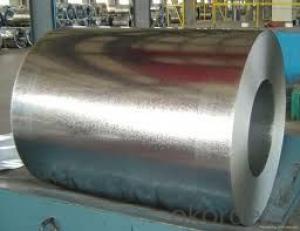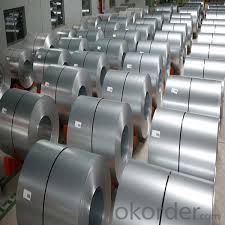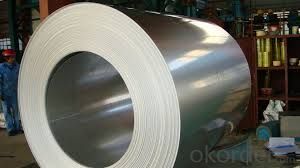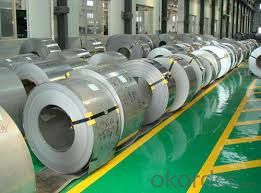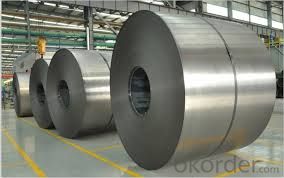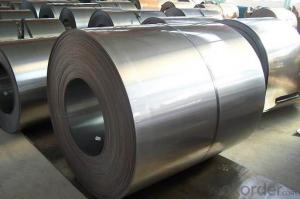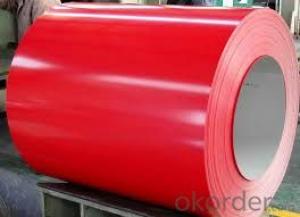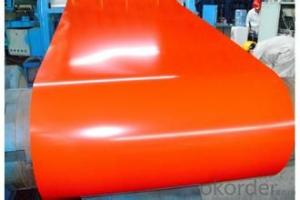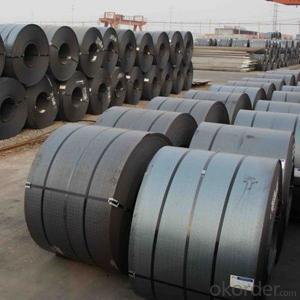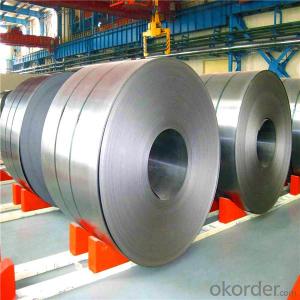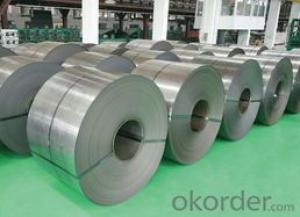Cold rolled Steel coil / sheet / plateSPCE
- Loading Port:
- Tianjin
- Payment Terms:
- TT OR LC
- Min Order Qty:
- 100 m.t.
- Supply Capability:
- 5000000 m.t./month
OKorder Service Pledge
OKorder Financial Service
You Might Also Like
Description:
The raw material of cold rolled steel coil/sheet is high quality hot rolled product, and after pickling, kinds of new technology and new process of global cold rolling production have been applied. Therefore the manufacturing, home appliance, automobile etc.
Specification:
COLD ROLLED STEEL | |
Thicknenss | 0.10mm-4.00mm |
Width | 600mm-2000mm |
Sheets length | 1200-6000mm |
Coil inner diameter | 508-610mm |
Surface treatement | matt finish/bright finish,oiling/dry, bright anneal/black anneal |
Coil weight | 3-5t |
Application:
1. Refrigerators, cabinets, power distribution baords and drums.
2. Automobile floor and roof panels.
3. Automobile fenders and quarter panels
4. Automobile fenders and quarter panels
Images:
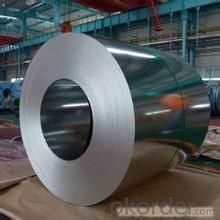
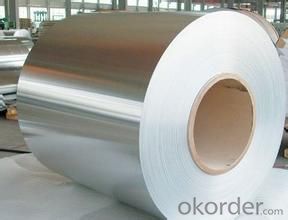
Our products enjoy an excellent reputation and have been exported to Europe, South-America, the Middle-East, Southeast-Asia, Africa and Russia etc.. We sincerely hope to establish good and long-term business relationship with your esteemed company.
FAQ
1. Do you have QC team?
Yeah, sure, our QC team is very important, they will keep the quality control for our products.for quality inspection every day.
- Q: What are the different types of steel coils available?
- There exists a variety of steel coils, each possessing distinct characteristics and uses. 1. Hot Rolled Steel Coils: These coils undergo production at high temperatures and are ideal for applications requiring a sleek and polished finish, such as automotive components, construction materials, and machinery. 2. Cold Rolled Steel Coils: In order to enhance surface finish and dimensional accuracy, these coils are processed at lower temperatures. They find extensive use in industries like automotive, appliances, and electronics, where precision is of utmost importance. 3. Galvanized Steel Coils: A layer of zinc is applied to these coils to safeguard the underlying steel against corrosion. They are commonly utilized in the construction sector, roofing, and automotive parts that are exposed to harsh environmental conditions. 4. Stainless Steel Coils: Created by combining iron, chromium, and other elements, these coils offer exceptional resistance to corrosion and possess high strength. They are widely employed in applications demanding hygiene, such as food processing equipment, medical instruments, and kitchen appliances. 5. Electrical Steel Coils: Specifically designed for applications requiring magnetic properties, these coils are utilized in transformers, electric motors, and generators. They exhibit low core losses and high permeability, ensuring efficient transfer of electrical energy. 6. Pre-painted Steel Coils: These coils are coated with paint or other protective coatings to enhance their visual appeal and provide additional protection against corrosion. They are commonly used in the construction industry for cladding, roofing, and siding. 7. Tinplate Steel Coils: A thin layer of tin is applied to these coils to prevent corrosion and act as a barrier against moisture and oxygen. They find widespread usage in the packaging industry for cans, containers, and other food or beverage packaging. These examples merely scratch the surface of the various steel coil options available in the market. Each variant possesses its own unique properties and applications, rendering them suitable for diverse industries and purposes.
- Q: Are steel coils used in HVAC systems?
- Yes, steel coils are commonly used in HVAC (Heating, Ventilation, and Air Conditioning) systems.
- Q: Hello,is it possible to divide an alloy in its own elements? I am particularly interested in Stainless Steel, which is made of Nickel, Chrome and Iron. Do you have an idea of where can I find some more information (blogs, reviews, sites or books)?Thanks for your help
- All you have to do is heat the alloy. Since an alloy is a physical mixture heating will be able to separate the different elements according to their melting point. All elements have their own unique melting point.
- Q: I asked a question last week about stainless steel and got some great answers. I combed all over the internet to try to figure this one out but could not find anything. What resists bending better: chrome vanadium steel (i.e. a steel commonly used to make tools) or stainless steel 304. My guess would be the chrome vanadium alloy but thats just a guess. Which on resist's bending better and by how much (#'s please :-)). Also, if anyone knows if chrome vanadium steel is cheaper than stainless steel 304 that would be awesome? I can't find a price per pound on chrome vanadium steel anywhere! Please help. Thanks in advance-Josh
- Type 304 stainless steel can be tempered to give tensile strength up to about 125,000 psi. There are many chrome vanadium alloys, and tempers, but they are generally very hard steels used for machine tools which are used to cut other steels. They generally are much stronger, and can be hardened up to tensile strengths of 250,000 psi and beyond. (Bending strength is proportional to tensile strength, but Cr-V steels are not usually used for beams or other structure members.) Cr-V steels are specialty alloys and will probably be a good bit more expensive per pound than common stainless alloys. For any steel, price depends on the form you are buying, i.e. plate, bar, or other shape, as well as the alloy and temper specified, and the quantity. You need to get prices from a supplier. You can find some online catalogs, but you usually have to call the vendor for price info.
- Q: Why can hot rolled coils be placed outside?
- Because hot-rolled steel coils are generally used as raw material for semi-finished products, they have to be further used for pickling and cold rolling to make more use. The rust and dust can be removed after pickling
- Q: does anyone out there know where to get a good deal on a pedal steel guitar? i am from northern indiana and i'm willing to travel some if i have to.i am just getting into pedal steel guitar and i really don't have any idea what i need. i don't know how to play a guitar (i do know how to play the piano and the drums) at all but i want to learn to play the pedal stell guitar and i can't do that without getting one first so, if anyone can help me out i would greatly appreciate it! :o)
- I agree with everything that Lester said. Another thought is to consider starting on a lap steel guitar rather than a pedal steel - its related, a little easier to learn on, and less expensive. Once you get proficient on the lap steel, you can move up to the pedal steel. Good luck!
- Q: How are steel coils inspected for width using laser measurement?
- Steel coils are inspected for width using laser measurement by placing a laser sensor on one side of the coil and a reflective target on the other side. The laser beam is emitted towards the target, and the reflected beam is analyzed by the sensor. Based on the time it takes for the beam to travel back and the angle of the beam, the width of the steel coil can be accurately measured.
- Q: I need to know how you rate the hardness of steel any ideas?
- There's an instrument called a hardness tester. It has a stylus which is pressed into the surface of a sample of steel with a calibrated amount of force. The distance it penetrates tells you how hard the steel is. (This is sometimes called 'indentation hardness'). The most common scale is the Rockwell Scale. Actually it gets a little complicated because there are several scales, one for tungsten carbide (the hardest man-made material), one for aluminum and brass and soft steels, and one for hardened steels. Another scale for indentation hardness is the Brinell scale. It's a little less complicated, with one scale to measure the hardness of wood, plastic, etc. as well as steel.
- Q: Hi there! I just purchased two cookie sheets labeled as non-stick 100% carbon steel. I've never heard of carbon steel before, and I'm trying to be careful about not using certain products that are harmful to health such as aluminum and Teflon. Is this a safe metal choice for baking?
- Yes. Carbon steel is one of the most common metals used by human beings. When the Bronze Age ended and the Iron Age started, most of the iron humans could make was carbon steel. A Cast Iron frying pan is carbon steel (well... technically, there are differences between cast irons and steels but... anyway). Our cast iron frying pans (almost the only fry pans we have used for 30+ years) are mostly non-stick because we keep them well seasoned. Humans need iron in our diet anyway. You might want to check to verify what (if anything) it is coated with to make it Non-stick because, in general, steel cookware is stick. If it is coated with ceramic (enameled), then there won't be any rust because the iron is coated and protected from water. The non-stick ceramic coatings are very good. Ceramics are chemically inert to almost everything on earth (all but some of the most exotic chemicals you will ever find in a Chem Lab). As a side note... a large number of studies of industrial exposure to aluminum and aluminum compounds (people who work in Al production plants and are exposed to large quantities for years and years and years) has shown that there is NO correlation with Alzheimers or any other diseases. The major health risk for these populations was lung problems due to inhalation of fine dust (which, turned out, was not even as bad as breathing, for example, dust containing cotton fibers in garment workers).
- Q: How are steel coils used in the production of agricultural machinery?
- Steel coils are used in the production of agricultural machinery as they are a key component in the manufacturing of various parts. These coils are used to create durable and strong components such as frames, chassis, and structural supports, which are essential for the heavy-duty requirements of agricultural machinery. The steel coils are shaped, cut, and welded to create these components, ensuring the machinery can withstand the demanding conditions of farming operations.
Send your message to us
Cold rolled Steel coil / sheet / plateSPCE
- Loading Port:
- Tianjin
- Payment Terms:
- TT OR LC
- Min Order Qty:
- 100 m.t.
- Supply Capability:
- 5000000 m.t./month
OKorder Service Pledge
OKorder Financial Service
Similar products
Hot products
Hot Searches
Related keywords
